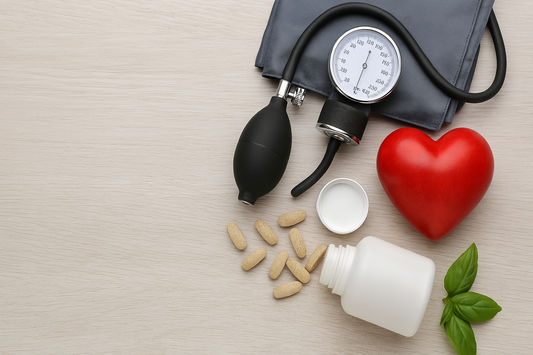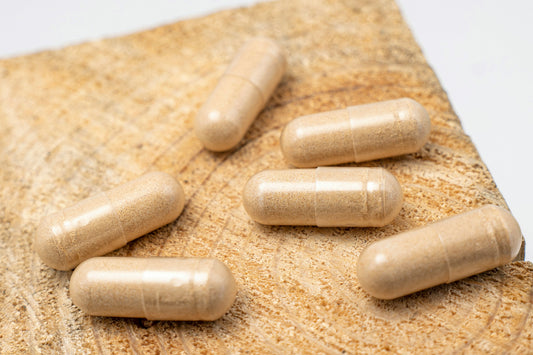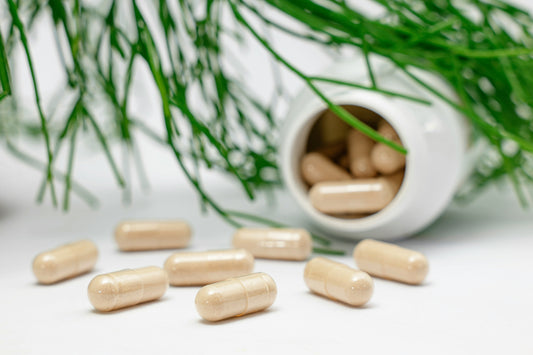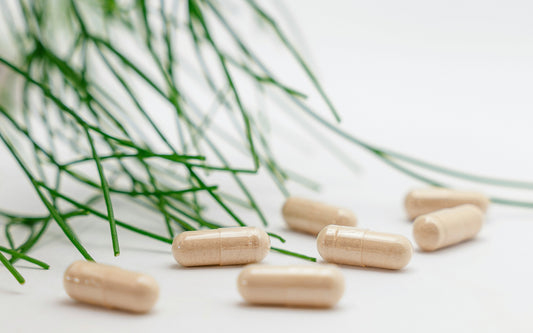What Will Bring Down Blood Pressure Quickly
High blood pressure is a common health concern that can lead to serious health complications if left unmanaged. In this article, we will explore effective strategies to bring down blood pressure quickly through natural remedies and lifestyle changes.

- Implementing lifestyle changes and natural remedies can help lower blood pressure quickly.
- Taking a warm bath or shower, practicing breathing exercises, and incorporating relaxation techniques can provide immediate relief.
- Long-term care plans that include weight loss, smoking cessation, reduction of alcohol and caffeine intake, adequate sleep, stress management, and a healthy diet low in sodium, sugar, and processed foods are essential for managing high blood pressure.
- Regular exercise, prescribed medication, and being aware of symptoms are important for maintaining healthy blood pressure levels.
- Maintaining a healthy weight, engaging in regular physical activity, reducing sodium intake, eating a balanced diet, limiting alcohol consumption, managing stress, monitoring blood pressure, and quitting smoking are long-term strategies to lower blood pressure.
The Role of NutriGrove Blood Pressure Supplement
NutriGrove Blood Pressure Supplement is a natural and effective way to support healthy blood pressure levels. With its specially formulated blend of ingredients, this supplement can be a valuable addition to your daily routine for managing hypertension.
One of the key ingredients in NutriGrove Blood Pressure Supplement is Hawthorn extract. Hawthorn has been used for centuries to support cardiovascular health and is known for its ability to promote healthy blood flow and regulate blood pressure.
In addition to Hawthorn extract, this supplement also contains Garlic extract, which has been shown to have positive effects on blood pressure levels. Garlic contains compounds that help relax blood vessels, allowing for better blood flow and reduced pressure on the arterial walls. It also has antioxidant properties that can help protect the heart from damage.
To further enhance its effectiveness, NutriGrove Blood Pressure Supplement includes Hibiscus extract. Hibiscus has been used in traditional medicine to manage hypertension due to its diuretic and vasodilatory properties. It helps flush out excess fluids and relaxes blood vessels, promoting healthy blood pressure levels.
| Key Benefits of NutriGrove Blood Pressure Supplement: |
|---|
| Supports healthy blood pressure levels |
| Promotes optimal blood flow |
| Provides antioxidant protection for the heart |
| Helps reduce arterial pressure |
| Aids in maintaining cardiovascular health |

When combined with lifestyle changes such as dietary modifications and regular exercise, NutriGrove Blood Pressure Supplement can be a powerful tool in managing hypertension naturally. As always, it is important to consult with your healthcare professional before starting any new supplement.
Remember, taking care of your blood pressure is crucial for your overall health and well-being. By incorporating NutriGrove Blood Pressure Supplement into your daily routine, along with other healthy habits, you can take proactive steps towards maintaining optimal blood pressure levels and promoting a healthy heart.
Lifestyle Changes for Lowering Blood Pressure
Making certain lifestyle changes is crucial for lowering blood pressure and maintaining a healthy cardiovascular system. By incorporating specific foods, exercises, and effective strategies into your routine, you can effectively manage hypertension.
One of the key lifestyle changes for lowering blood pressure is adopting a healthy diet. Focus on consuming foods that are naturally low in sodium, saturated fats, and added sugars. Opt for fruits, vegetables, whole grains, lean proteins, and low-fat dairy products. Some foods, like bananas, leafy greens, and nuts, are particularly beneficial for blood pressure management due to their high potassium and magnesium content.
In addition to a healthy diet, regular exercise plays a crucial role in managing hypertension. Engaging in aerobic activities, such as brisk walking, cycling, or swimming, for at least 30 minutes a day can help lower blood pressure. Strength training exercises, like lifting weights or using resistance bands, can also be beneficial. Remember to consult with your healthcare provider before starting any new exercise regimen.
Alongside dietary modifications and exercise, it's important to adopt effective strategies for reducing stress and improving overall well-being. This can include practicing relaxation techniques, such as deep breathing exercises and meditation, as well as engaging in activities that bring you joy and help you unwind. Managing stress is essential, as it can directly impact blood pressure levels.
| Key Points: |
|
|---|
In order to effectively manage high blood pressure, it is essential to make meaningful lifestyle changes. These changes include adopting a healthy diet, engaging in regular exercise, and implementing effective stress management strategies. By incorporating these habits into your daily routine, you can take proactive steps towards lowering your blood pressure and maintaining a healthy cardiovascular system.
Importance of Dietary Modifications
A balanced and nutritious diet plays a vital role in managing high blood pressure. By incorporating foods that are known to lower blood pressure, you can positively impact your cardiovascular health. One effective way to lower blood pressure through dietary modifications is by following the DASH (Dietary Approaches to Stop Hypertension) eating plan.

The DASH eating plan emphasizes fruits, vegetables, whole grains, lean proteins, and low-fat dairy products. These foods are rich in nutrients such as potassium, calcium, magnesium, and fiber, which have been shown to help lower blood pressure. Additionally, the DASH eating plan recommends reducing sodium intake by limiting processed and packaged foods, as excess sodium can contribute to high blood pressure.
Here is a sample table that highlights some foods that can help lower blood pressure:
| Food Group | Examples |
|---|---|
| Fruits | Apples, bananas, oranges, berries |
| Vegetables | Spinach, kale, broccoli, carrots |
| Whole Grains | Oats, brown rice, quinoa, whole wheat bread |
| Lean Proteins | Chicken breast, turkey, fish, tofu |
| Low-Fat Dairy Products | Yogurt, milk, cheese |
By including these foods in your daily meals, you can not only lower your blood pressure but also improve your overall health. However, it is important to note that dietary modifications alone may not be sufficient to manage high blood pressure. It is recommended to consult with a healthcare professional or a registered dietitian to develop a comprehensive plan that aligns with your specific needs and preferences.
The Power of Regular Exercise
Engaging in regular exercise is a powerful way to lower blood pressure and improve overall cardiovascular health. By incorporating specific exercises into your routine, you can effectively manage hypertension.
One effective exercise for reducing high blood pressure is aerobic activity. This includes activities such as brisk walking, jogging, cycling, swimming, and dancing. Aim for at least 30 minutes of moderate-intensity aerobic exercise most days of the week. Regular aerobic exercise helps to strengthen your heart, improve blood flow, and lower blood pressure.
In addition to aerobic exercise, strength training can also play a role in lowering blood pressure. By incorporating exercises that target major muscle groups, such as weightlifting or using resistance bands, you can improve muscle strength and reduce the risk of hypertension. Aim for two to three strength training sessions per week, with a focus on proper form and gradually increasing the intensity of your workouts.
Remember, always consult with your doctor before starting any exercise program, especially if you have underlying health conditions or concerns. They can provide individualized recommendations and ensure you are engaging in safe and appropriate exercises to lower your blood pressure effectively.
| Exercise Type | Recommended Frequency |
|---|---|
| Aerobic exercise | At least 30 minutes most days of the week |
| Strength training | Two to three sessions per week |
Additional Strategies for Lowering Blood Pressure
In addition to dietary modifications and regular exercise, there are several other strategies and alternative treatments that can help bring down blood pressure quickly and in a natural way. These methods can be used in conjunction with lifestyle changes to provide further support in managing hypertension.
1. Breathing Exercises and Relaxation Techniques
One effective way to lower blood pressure naturally is through practicing breathing exercises and relaxation techniques. Deep breathing exercises, such as diaphragmatic breathing, have been shown to reduce stress and promote relaxation, ultimately helping to lower blood pressure. Additionally, techniques like progressive muscle relaxation and guided imagery can help relax the mind and body, reducing hypertension. Consider incorporating these practices into your daily routine to experience their calming effects on your blood pressure levels.
2. Herbal Supplements and Remedies
Herbal supplements and remedies have been used for centuries to treat various health conditions, including high blood pressure. Certain herbs, such as hawthorn, garlic, and olive leaf extract, have shown promising results in reducing blood pressure levels. However, it is important to consult with a healthcare professional before incorporating any herbal supplements into your routine, as they may interact with medications or have contraindications for certain individuals. It's always best to seek guidance from a qualified healthcare provider.

3. Acupuncture and Acupressure
Acupuncture and acupressure are alternative therapies that have been used for thousands of years to promote healing and balance in the body. These practices involve stimulating specific points on the body to regulate blood flow and reduce tension. Research has shown that acupuncture and acupressure can help lower blood pressure and improve overall cardiovascular health. If you are considering these therapies, be sure to seek treatment from a licensed and experienced practitioner.
4. Mindfulness Meditation
Mindfulness meditation is a practice that involves focusing one's attention on the present moment without judgment. It has been found to have numerous health benefits, including reducing stress and lowering blood pressure. By incorporating mindfulness meditation into your daily routine, you can promote relaxation and cultivate a sense of calm, which can have a positive impact on your blood pressure levels.
By exploring these additional strategies and alternative treatments, you can complement your dietary and lifestyle changes to effectively manage high blood pressure. Remember to consult with a healthcare professional before starting any new treatment or supplement regimen, and always prioritize your overall well-being.
The Importance of Long-Term Care
While it is important to find quick relief for high blood pressure, long-term care and management are essential for maintaining optimal cardiovascular health. Adopting a proactive approach to managing high blood pressure naturally can have significant long-term benefits and reduce the risk of heart disease, stroke, and other complications.
One crucial aspect of long-term care is making lifestyle changes that promote healthy blood pressure levels. This includes maintaining a healthy weight through regular exercise and a balanced diet. Regular physical activity, such as brisk walking, cycling, or swimming, helps to strengthen the heart and improve circulation. Incorporating aerobic activities into your routine for at least 150 minutes per week can be beneficial.
Additionally, reducing sodium intake by choosing fresh, whole foods and minimizing processed and packaged foods can contribute to maintaining healthy blood pressure levels. A diet rich in fruits, vegetables, whole grains, lean proteins, and healthy fats can provide essential nutrients and support cardiovascular health.
| Lifestyle Changes for Managing High Blood Pressure Naturally | Benefits |
|---|---|
| Regular exercise | Strengthens the heart, improves circulation |
| Healthy diet | Provides essential nutrients, supports cardiovascular health |
| Weight management | Reduces strain on the heart, improves overall health |
Implementing stress management techniques, such as deep breathing exercises, meditation, and mindfulness, can also contribute to lowering blood pressure naturally. These practices help to reduce anxiety and promote relaxation, easing tension and strain on the cardiovascular system.
By committing to long-term care strategies and making positive lifestyle changes, individuals can effectively manage high blood pressure naturally. It is important to consult with a healthcare professional for personalized guidance, especially in cases where medication is necessary. Remember, taking proactive steps towards managing high blood pressure plays a vital role in maintaining optimal cardiovascular health.

It is crucial to be aware of the symptoms of high blood pressure and to seek immediate medical attention if experiencing a hypertensive crisis. High blood pressure, or hypertension, often called the "silent killer," may not present any noticeable symptoms until it reaches a severe stage. However, some common signs to watch out for include:
- Severe headaches
- Shortness of breath
- Chest pain
- Irregular heartbeat
- Blurred vision
- Confusion or dizziness
If you experience any of these symptoms, it is essential to contact your healthcare provider immediately or seek emergency care. Ignoring these signs can lead to potentially life-threatening complications.
To ensure accurate diagnosis and appropriate treatment, it is helpful to monitor your blood pressure regularly at home using a reliable blood pressure monitor. This allows you to keep track of any fluctuations and provide valuable information to your healthcare provider.

Managing high blood pressure naturally requires proactive steps and awareness of the potential dangers. By recognizing the symptoms and understanding when to seek emergency care, you can prioritize your well-being and prevent serious complications. Remember, your health is in your hands, and taking control of your blood pressure is crucial for a healthy and fulfilling life.
| Signs of Hypertensive Crisis | What to Do |
|---|---|
| Severe headaches | Seek immediate medical attention |
| Shortness of breath | Contact your healthcare provider or go to the nearest emergency room |
| Chest pain | Call 911 or your local emergency number |
| Irregular heartbeat | Do not delay and seek medical assistance |
| Blurred vision | Immediately consult a healthcare professional |
| Confusion or dizziness | Seek prompt medical evaluation |
Conclusion
By incorporating natural remedies, making lifestyle changes, and following a long-term care plan, you can effectively bring down blood pressure quickly and maintain a healthy cardiovascular system.
To bring down blood pressure quickly, there are several methods you can try. Taking a warm bath or shower, doing a breathing exercise, and practicing relaxation techniques can provide immediate relief. However, it is important to implement a long-term care plan to effectively manage high blood pressure.
This includes losing weight, quitting smoking, reducing alcohol and caffeine intake, prioritizing sleep, avoiding stressful situations, eating a healthy diet low in sodium, sugar, and processed foods, engaging in regular exercise, and taking prescribed medication. It is also important to be aware of the symptoms of high blood pressure and know when to seek emergency care.
Additionally, lifestyle changes such as maintaining a healthy weight, exercising regularly, reducing sodium intake, eating a balanced diet, limiting alcohol consumption, managing stress, monitoring blood pressure at home, and quitting smoking can help lower blood pressure in the long term.
FAQ
What are some natural remedies to lower blood pressure quickly?
To bring down blood pressure quickly, you can try taking a warm bath or shower, doing a breathing exercise, or practicing relaxation techniques.
What lifestyle changes can help lower high blood pressure?
Lifestyle changes for lowering blood pressure include losing weight, quitting smoking, reducing alcohol and caffeine intake, prioritizing sleep, avoiding stressful situations, eating a healthy diet low in sodium, sugar, and processed foods, engaging in regular exercise, and taking prescribed medication.
What are some effective ways to lower blood pressure in the long term?
Maintaining a healthy weight, exercising regularly, reducing sodium intake, eating a balanced diet, limiting alcohol consumption, managing stress, monitoring blood pressure at home, and quitting smoking can help lower blood pressure in the long term.
How can dietary modifications help in managing high blood pressure?
A healthy diet plays a crucial role in lowering blood pressure. Including foods that are low in sodium and high in potassium, such as fruits, vegetables, and whole grains, can be beneficial for managing hypertension.
Why is regular exercise important for reducing high blood pressure?
Regular exercise has been shown to be effective in reducing high blood pressure. Engaging in activities such as brisk walking, swimming, or cycling can help lower blood pressure and improve overall cardiovascular health.
What additional strategies can be used to lower blood pressure naturally?
In addition to natural remedies and lifestyle changes, other strategies for lowering blood pressure include practicing breathing exercises, practicing relaxation techniques, and exploring alternative treatments for hypertension.
Why is long-term care important in managing high blood pressure?
Implementing a long-term care plan is essential for effectively managing high blood pressure. By making sustainable lifestyle changes and consistently monitoring blood pressure, individuals can better control their hypertension and reduce the risk of related complications.
How can I recognize the symptoms of high blood pressure and when should I seek emergency care?
It is important to be aware of the symptoms of high blood pressure, which can include headaches, dizziness, blurred vision, chest pain, and difficulty breathing. If experiencing severe symptoms or a sudden increase in blood pressure, it is crucial to seek emergency medical care immediately.
What is the importance of taking proactive steps to manage high blood pressure naturally?
Managing high blood pressure through natural methods can help individuals maintain better overall health and reduce the risk of related complications. By making lifestyle changes and incorporating natural remedies, individuals can effectively lower their blood pressure and improve their quality of life.





